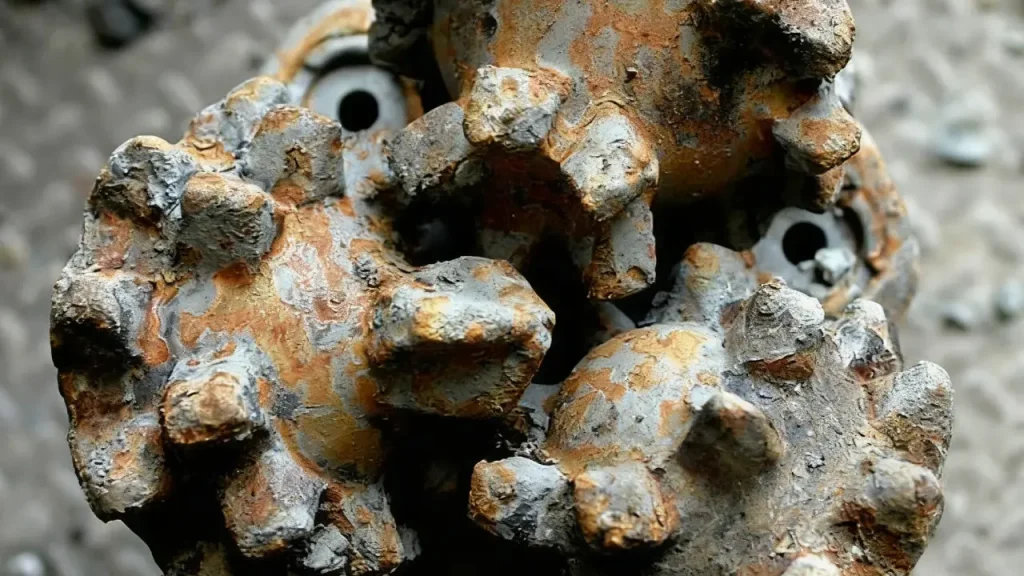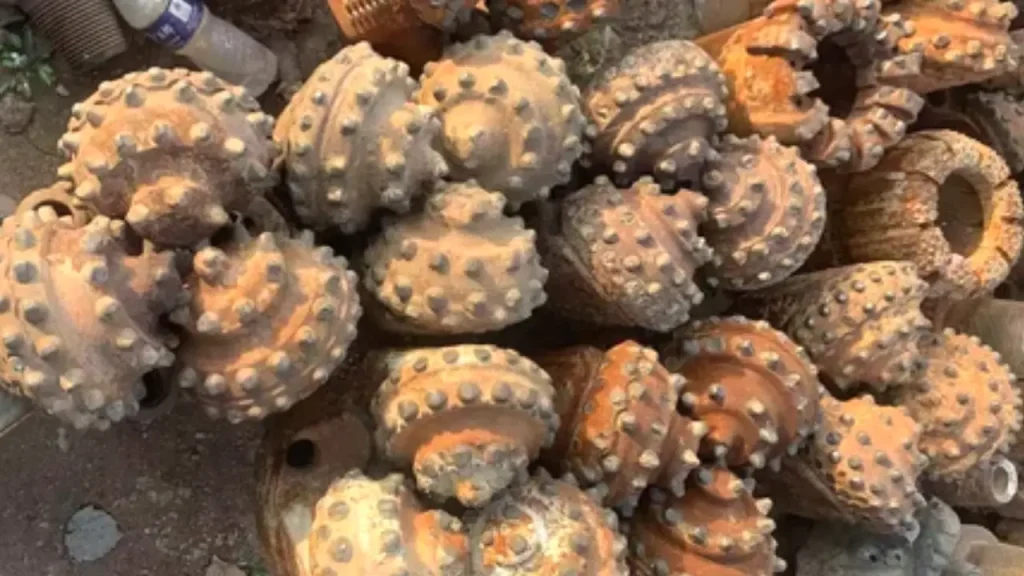Drill bits are essential tools in construction, manufacturing, and DIY projects, but they wear out over time. Proper recycling of drill bits not only reduces environmental impact but also helps recover valuable materials. Understanding recycling options ensures safe disposal while promoting sustainability in your workshop or facility.
Recycling drill bits involves processes such as refurbishing, repurposing, and metal recovery. By following effective methods, businesses and individuals can extend the lifecycle of their tools, save costs, and contribute to eco-friendly practices. This blog explores practical ways to recycle drill bits efficiently and responsibly.
Are Drill Bits Reusable?
Rock drill bits can be reused multiple times depending on their type, material, and the conditions in which they are used. Tungsten carbide and steel bits, commonly used in rock drilling, maintain durability under heavy loads, allowing them to be resharpened or refurbished for repeated use, reducing operational costs.
However, the lifespan of rock drill bits depends on factors like rock hardness, drilling speed, and maintenance. Regular inspection, proper cleaning, and timely replacement of worn parts can extend their usability. Reusing drill bits safely ensures consistent drilling performance while minimizing waste and supporting more sustainable operations.
How to Recycle Drill Bits?

Recycling rock drill bits helps reduce waste, recover valuable materials, and save costs. By following proper methods, you can refurbish, repurpose, or recycle worn or broken bits efficiently, ensuring sustainable use and extending the life of your drilling tools. Here are five effective ways to recycle rock drill bits.
Refurbishing and Resharpening
Refurbishing involves inspecting worn rock drill bits and restoring their cutting edges. Tungsten carbide inserts or steel tips can be resharpened to regain performance, making the bits usable for several more drilling operations.
Regular maintenance during refurbishing ensures the bits maintain their hardness and alignment. Proper resharpening techniques prevent damage, reduce operational risks, and save money compared to purchasing new bits, while keeping waste to a minimum.
Repurposing for Other Applications
Worn rock drill bits can be adapted for alternative uses, such as cutting smaller rocks, breaking concrete, or metal shaping tasks. Repurposing extends the functional life of the bits beyond their original drilling purpose.
Repurposing requires assessing the bit’s condition and selecting suitable applications that match its remaining durability. This method provides cost savings, reduces environmental impact, and makes efficient use of materials that might otherwise be discarded.
Metal Recycling
Drill bits are primarily made of steel and tungsten carbide, which are recyclable. By collecting and sending worn bits to a metal recycling facility, their raw materials can be recovered and reused in new products.
Metal recycling reduces landfill waste and supports sustainable resource management. Proper segregation and preparation of drill bits before recycling ensures efficient processing, allowing both small workshops and large operations to contribute to environmental conservation.
Industrial Scrap Exchange
Some industrial suppliers or workshops accept used drill bits as scrap in exchange for credit or discounts on new purchases. This system encourages responsible disposal while offsetting costs for future tool procurement.
Participating in scrap exchange programs ensures drill bits are handled by professionals and properly recycled. It also strengthens business relationships with suppliers and promotes circular economy practices within the industrial sector.
Donation or Secondary Market
Drill bits that are lightly worn but no longer ideal for heavy rock drilling can be donated to schools, training centers, or sold in secondary markets. These bits can still serve educational or light-duty purposes.
Donation or resale extends the useful life of drill bits, reduces waste, and provides affordable tools for others. This approach promotes sustainability, supports training programs, and ensures that valuable materials continue to be utilized rather than discarded.
When to Recycle Worn Drill Bits?

Knowing when to recycle worn drill bits is essential for safety, efficiency, and cost management. Rock drill bits lose performance over time, and recycling at the right moment ensures optimal drilling results while recovering materials and supporting sustainable practices in your workshop or operations.
- Excessive Wear on Cutting Edges: When the cutting edges of a rock drill bit become dull, chipped, or rounded, drilling efficiency decreases, leading to slower progress, increased power consumption, and higher operational costs. At this point, recycling or refurbishing is necessary to restore performance.
- Reduced Penetration Rates: If drill bits start penetrating rock more slowly than usual, it indicates that wear is affecting their effectiveness. Recycling worn bits and replacing or refurbishing them prevents unnecessary strain on equipment and maintains consistent drilling performance.
- Frequent Breakage or Damage: Drill bits that break or fracture frequently during drilling pose safety risks and increase costs. Recycling damaged bits ensures materials are recovered and prevents repeated operational disruptions caused by tool failure.
- Corrosion or Rust Formation: Excessive rust or corrosion on steel or tungsten carbide bits compromises structural integrity. Recycling these bits recovers valuable materials and prevents environmental hazards from discarded metal waste.
- End of Recommended Service Life: Manufacturers provide guidelines for the lifespan of drill bits based on usage and rock type. When a bit reaches the end of its recommended life, recycling ensures it is safely repurposed or processed for raw materials.
Conclusion
Recycling drill bits is a smart way to reduce waste, recover materials, and support environmentally responsible practices. Proper handling ensures that valuable metals are reused and that discarded bits do not harm the environment. Implementing recycling strategies can benefit both small workshops and large industrial operations.
Refurbishing and repurposing worn drill bits allows you to maximize their utility. Many bits can be sharpened, reconditioned, or adapted for different applications, extending their lifespan and reducing the need for constant replacement. This approach saves money while promoting sustainable resource use.
For businesses seeking reliable tools, sourcing wholesale drill bits is essential. At Sinodrills, we provide a wide range of drill bits designed for durability and performance. Purchasing wholesale ensures cost efficiency and consistent quality, helping your operations run smoothly while supporting responsible tool management practices.


